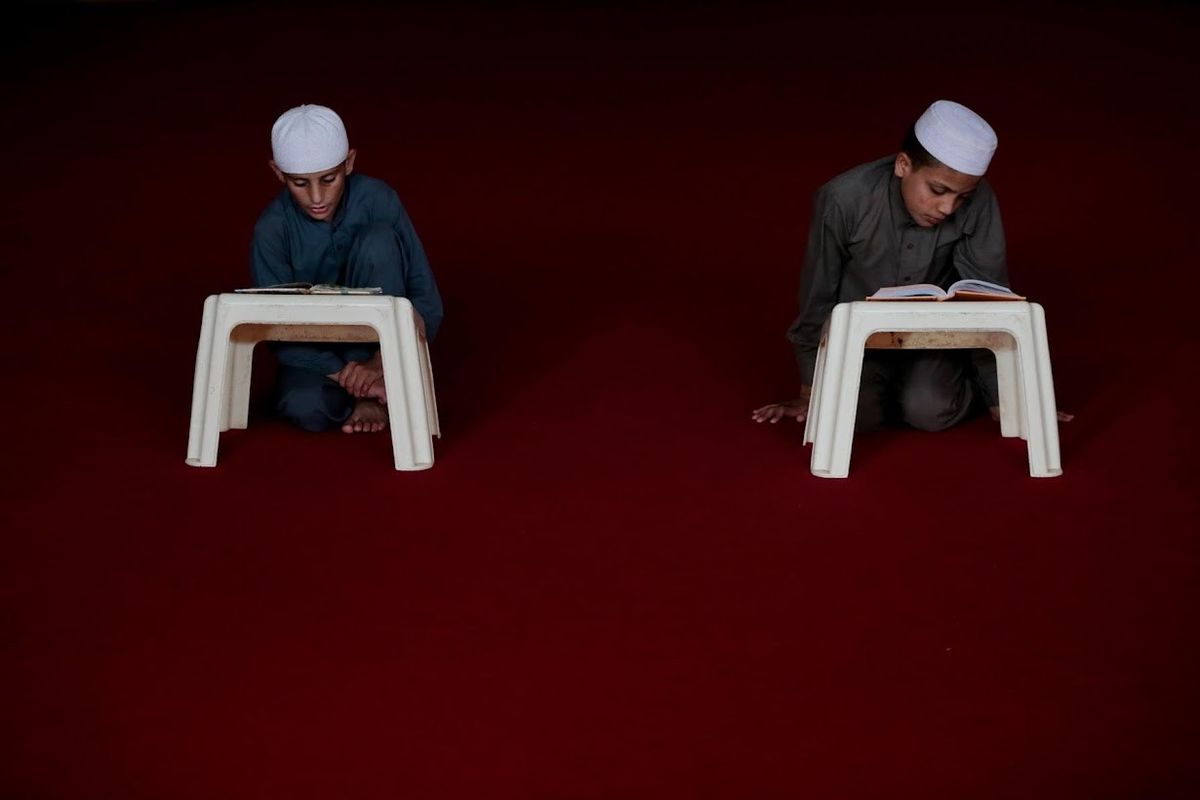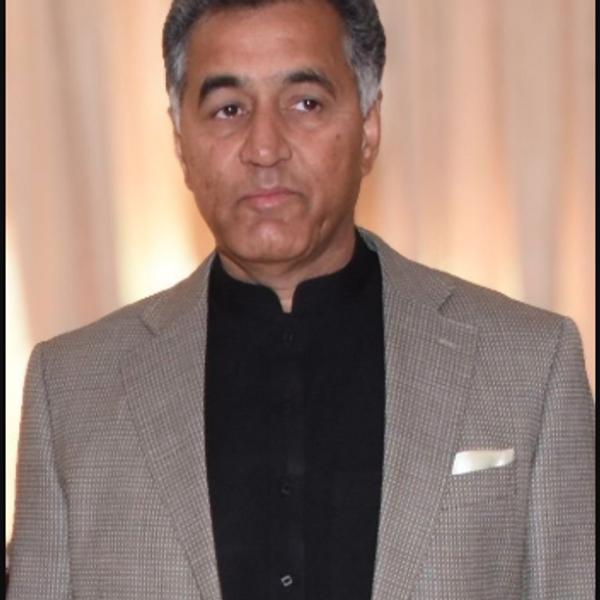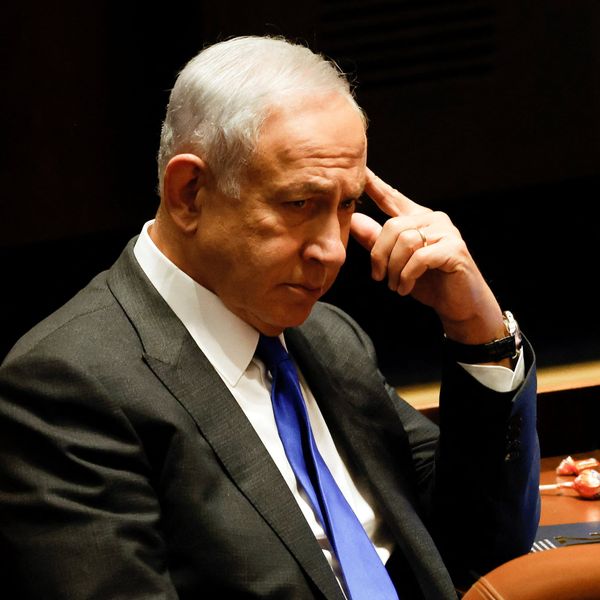Pakistan simplifies long-contested process of registering madrassas
Under new law, madrassas must register within six months and submit yearly audits

Javed Hussain
Correspondent
I have almost 20 years of experience in print, radio, and TV media. I started my career with "Daily Jang" after which I got the opportunity to work in FM 103, Radio Pakistan, News One, Ab Tak News, Dawn News TV, Dunya News, 92 News and regional channels Rohi TV, Apna Channel and Sach TV where I worked and gained experience in different areas of all three mediums. My journey from reporting to news anchor in these organisations was excellent. Now, I am working as a correspondent with Nukta in Islamabad, where I get the opportunity of in-depth journalism and storytelling while I am now covering parliamentary affairs, politics, and technology.

Introduced by Federal Law Minister Azam Nazeer Tarar, the law mandates that all madrassas offering religious education register with the government.
Reuters/File
Alongside the 26th Constitutional Amendment, Pakistan’s parliament in a recently held midnight session also passed amendments simplifying the long-contested process of registering madrassas.
The amendments were introduced in clause 21 of the Societies Registration Act of 1860 – a law previously used to register seminaries in Pakistan till 9/11.
Introduced by Federal Law Minister Azam Nazeer Tarar, the law mandates that all madrassas offering religious education register with the government.
The amendment requires unregistered madrassas to complete registration within six months, while newly established ones must register within a year of founding. A madrassas with multiple branches is only required to register once, simplifying the administrative process for these institutions.
The law mandates that madrassas conduct regular audits and submit copies of these reports to the relevant departments. According to Clause 4 of Article 21 of the Amendment Act, no madrassa is permitted to teach materials promoting militancy, sectarianism, or religious hatred. However, comparative religious studies and science instruction within the context of the Holy Quran and Ahadith teachings are allowed, and madrassas are authorized to include general and technical studies in their curriculum.
Registered madrassas are also exempt from registering under any other laws, and the amendment recognizes madrassas’ essential role in Pakistani society, emphasizing the significance of religious education for all Muslims. The act aims to simplify and expedite the registration process, addressing challenges madrassas previously faced in obtaining formal recognition.
'A positive step'
The development was welcomed by major religious organizations. Speaking to Nukta, Maulana Abdul Qadoos, spokesperson for the Federation of Madaris (Wifaaqul Madaris) and Ittehad-e-Tanzeemat-Madaris Pakistan, called the amendment “a positive step towards a promising future”.
The Ittehad Tanzeemat Madaris Pakistan is an alliance of five federal religious educational boards whose registration took place between 1982 and 1987.
These boards include: Tanzeem-ul-Madaris Ahl-e-Sunnat, Wafaq-ul-Madaris Al-Arabia Pakistan, Wafaq-ul-Madaris Al-Salafiyyah, Wafaq-ul-Madaris Al-Shia and Rabita-ul-Madaris.
Maulana Abdul Qadoos emphasized that the amendment should reduce bureaucratic obstacles and eliminate unnecessary interference, recognizing madrassas as legitimate educational institutions.
Maulana Abdul Qadoos added that prior to 9/11, madrassas were registered under the Societies Act; however, the process was halted after 9/11. An MoU with the Ministry of Education later linked madrassas to the Directorate General of Religious Education (DGRE), but coordination issues persisted.
He further advocated that already registered madrassas should not be required to re-register, as this would create unnecessary delays. This new act also allows madrassas to open bank accounts and conduct annual audits, marking substantial progress toward formal acknowledgment.
Madarassas and boards
Currently, approximately 23,000 madrassas under the Wifaaqul Madaris educate around three million students. According to an official from the DGRE, 9,667 madrassas have been registered nationwide, while the number of unregistered madrassas is notably higher.
A breakdown of registration includes 430 madrassas in Azad Jammu and Kashmir (AJK), 227 in Islamabad, 3,782 in Khyber Pakhtunkhwa, 71 in Gilgit-Baltistan, 2,415 in Sindh, 2,236 in Punjab, and 506 in Balochistan.
An estimated three million students are enrolled in approximately 35,000 madrassas across the country, with around 26,160 registered under provincial or local governments.
Approximately 25,000 madrassas are affiliated with five main boards under Ittehad Tanzeemat-ul-Madaris Pakistan (ITMP), which acts as an umbrella body for madrassa examining boards.
Since Pakistan's inception, various reforms have targeted madrassas, such as establishing the Auqaf Department, equating madrassa degrees with an M.A. in Islamiat and Arabic, and introducing formal subjects. Other reforms include establishing a madrassa board and integrating madrassas with the broader educational framework.
The Ittehad Tanzeemat-ul-Madaris noted that while the act has been passed, its practical implementation remains crucial. The Societies Registration 1860 Amendment Act has not yet been updated on the parliament’s website.
Differing numbers
The province-wise breakdown of madrassa registrations, presented in the National Assembly by Federal Minister for Education Dr. Khalid Maqbool Siddiqui, shows differing numbers.
Currently, registered madrassas by province are as follows: 10,012 in Punjab; 2,416 in Sindh; 575 in Balochistan; 4,005 in Khyber Pakhtunkhwa; 445 in Azad Kashmir; 199 in Islamabad; and 86 in Gilgit-Baltistan. This brings the total number of registered madrassas in the country to 17,738.
The total number of students in registered madrassas is 2.25 million, distributed as follows: Punjab - 664,065; Sindh - 188,182; Balochistan - 71,815; Khyber Pakhtunkhwa - 1.28 million; Azad Jammu and Kashmir - 26,787; Islamabad - 11,301; and Gilgit-Baltistan - 4,346.
Dr Siddiqui further stated that there is no direct government funding of madrassas; however, the DGRE has provided 1,196 teachers to 598 madrassas and textbooks to 154,849 students in registered madrassas to support contemporary education.
He added that the DGRE, operating under the Ministry of Federal Education and Professional Training (FE&PT), is the sole federal department authorized to register madrassas nationwide, having registered 17,738 madrassas as of Sept. 11, 2024.







Comments
See what people are discussing